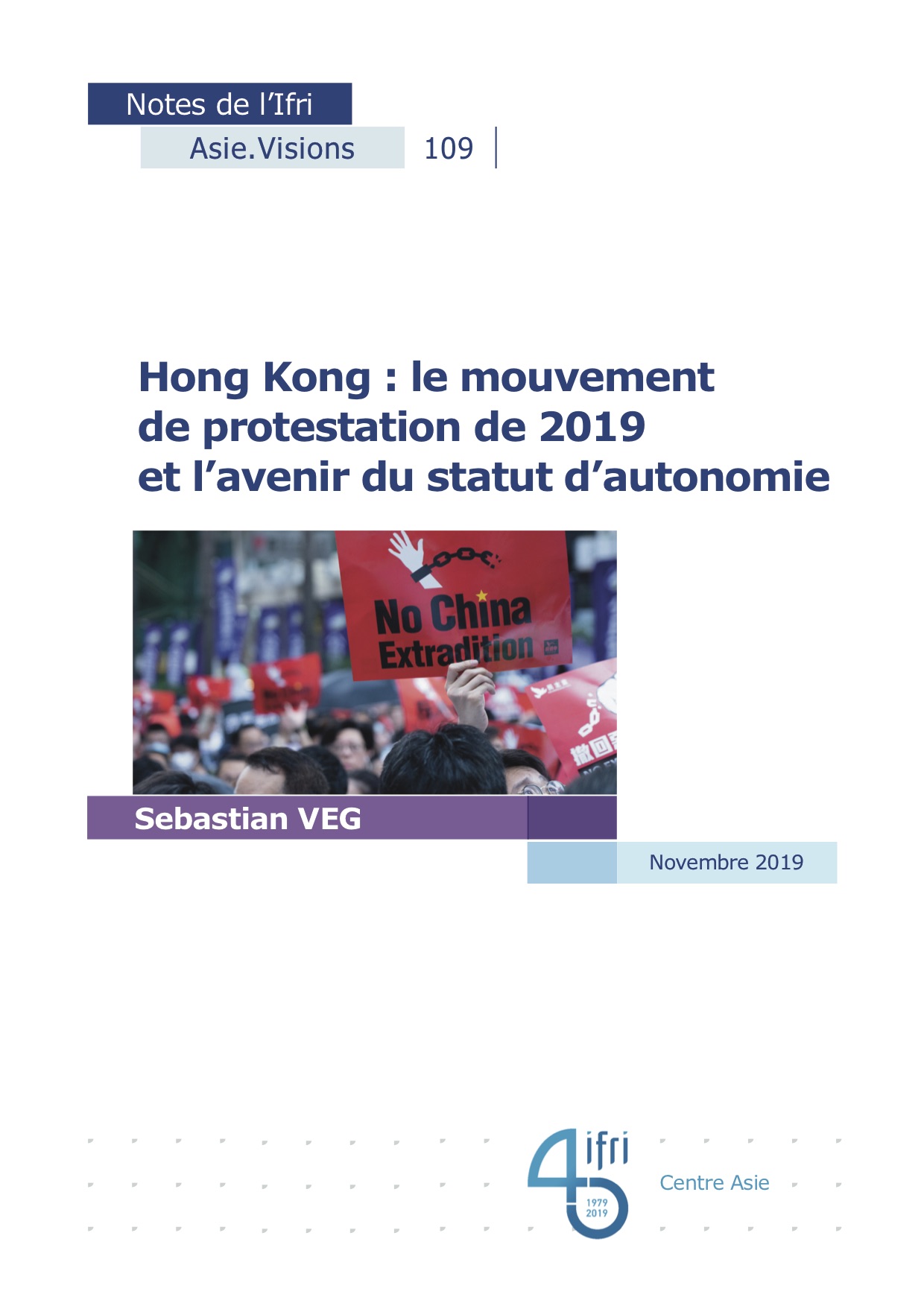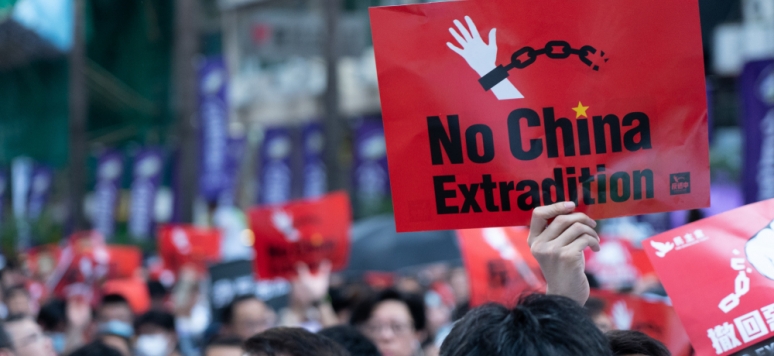Hong Kong : The 2019 Protest Movement and the Future of Autonomy

The current protest movement in Hong Kong, which began with the proposed extradition law in June 2019 that would have considerably weakened the judicial border between Hong Kong and Mainland China, has set itself apart from the city’s numerous movements in recent years by its massive following. The protestors, who employ original strategies (online organization, absence of clear leadership, use of digital tools), achieved an initial success with the suspension of the proposed law in September. But even after the law’s withdrawal, massive protests and increasing acts of violence continued to grip the territory. Demands now center around an independent investigation into acts of police violence and on the revival of democratic reforms.

The resiliency of this movement, and its support from within public opinion, can first be explained by the accumulation of resentment within a large part of the population. Such resentment has been provoked by the increasing alterations to the principles of autonomy that are inscribed in the official texts governing Hong Kong’s retrocession to China. The second reason of the movement’s longevity is the internal dynamics resulting from the almost exclusively-repressive approach that local and national authorities have adopted, with the tangible empowerment of the police relative to the local political authorities. The implication of the US Congress, in the context of the US-China trade war, has introduced an added degree of complexity to the equation.
The strong sense of civic identity that has developed in Hong Kong since its retrocession (even if this has not translated into demands for political independence so far) collide with the refusal of the authorities to pursue a democratic evolution, as set out in the Basic Law. An unstable balance has therefore set in between non-democratic institutions and an ever-growing mobilization of Hong Kong society that serves as a counterweight in protecting the “high degree of autonomy” that the territory constitutionally benefits from. For the time being it is difficult to see how this balance can survive the shock that the 2019 protest movement has dealt and the reprisals the central government is likely to enact.
This publication is only available in French: Hong Kong : le mouvement de protestation de 2019 et l'avenir du statut d'autonomie.
Related centers and programs
Discover our other research centers and programsFind out more
Discover all our analyses
China’s Strategy Toward Pacific Island countries: Countering Taiwan and Western Influence
Over the past decade, China has deployed a diplomatic strategy toward the Pacific Island Countries (PICs). This strategy pursues two main objectives: countering Taiwan's diplomatic influence in the region and countering the influence of liberal democracies in what Beijing refers to as the "Global South."

Opening up the G7 to South Korea to Address Contemporary Global Challenges
The G7’s global influence has diminished as powers like China reshape international governance through initiatives such as BRICS and the Shanghai Cooperation Organisation (SCO). With the G7 now representing just 10 per cent of the world’s population and 28 per cent of global GDP, its relevance is increasingly questioned.
Expanding SPDMM as a pivotal institution in the Pacific – A French perspective
The South Pacific Defence Ministers’ Meeting (SPDMM) is the only forum that brings together defense ministers from the wider South Pacific — including Chile, which is hosting it for the first time. This heterogeneous group of countries with varying resources, capacities, and interests — Australia, Chile, Fiji, France, New Zealand, Papua New Guinea (PNG), and Tonga — are united by their shared determination to strengthen cooperation on maritime security and humanitarian assistance and disaster relief (HADR) activities.
EU’s Derisking From China: A Daunting Task
With economic security as a major concern, the EU has recently turned to “derisking” from China. The EU strategy entails reducing critical dependencies and vulnerabilities, including in EU supply chains, and diversifying where necessary, while recognizing the importance and need to maintain open channels of communication.









